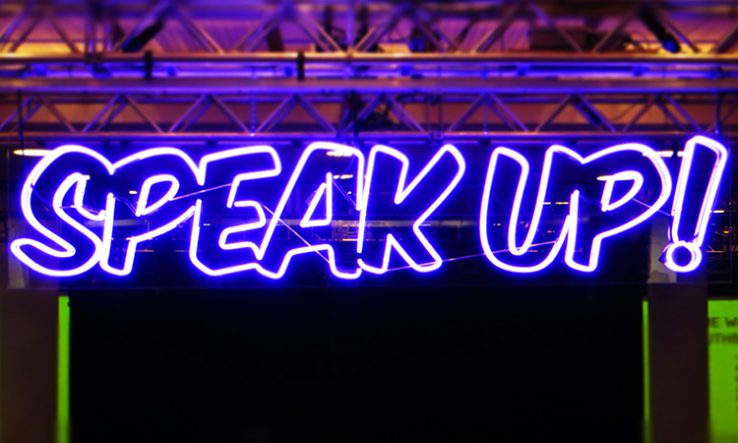
Image: Howard Lake [CC BY-SA 2.0], via Flickr
Government advice allows scientists to make public statements during election campaigns. Everyone needs to get the message, says Fiona Fox.
You could be forgiven for having missed it, but last month saw a significant victory for openness in science. On 11 April, the Cabinet Office issued revised election guidance for civil servants. This sets out how staff in government departments and non-departmental public bodies such as the research councils should conduct themselves during the period leading up to elections known as purdah.
Applied to civil servants, purdah is a good idea. Clearing the airwaves of government policy announcements, ministerial visits and publicity campaigns for a few weeks before an election allows attention to focus on the candidates and gives voters time and space to think.
However, I have never understood why researchers in universities and research council institutes should fall under purdah rules. The Science Media Centre (SMC) has reported on many examples of independent scientists being unable to publicise their research findings, comment on new studies or respond to media questions about breaking news in the run-up to elections. The result has been to deny the media and public the best experts and evidence on important science stories.
It’s easy to fathom why government-funded scientists should postpone the opening of a new building or think twice about making party political statements, but it seems impossible to justify not publicising peer-reviewed findings that are in the public interest. Yet that is exactly what happened during the 2017 general election, when Research Councils UK “strongly” advised against issuing press releases about new research.
Getting to the bottom of why sensible rules aimed at pausing government announcements should end up preventing independent scientists from commenting on a climate change study or answering questions about Ebola has been bewildering. Undoubtedly one problem has been the plethora of guidance on guidance that circulates during election time, which means that scientists see and hear multiple interpretations, often contradictory, of purdah advice.
During the last general election, for example, the SMC sought government advice when a group of normally media-friendly academics cited purdah as the reason they could not comment on a pollution story. We received reassurances to the contrary, and went back to the academics with the good news, only to be shown emails from other bits of government saying the exact opposite.
The number of such incidents during that election campaign prompted the scientific community to take action. The SMC, together with the Royal Statistical Society, the Association of British Science Writers and nine other scientific bodies wrote an open letter to the head of the Cabinet Office outlining their concerns and calling for a review of the purdah guidance.
The reply from the head of the civil service Jeremy Heywood suggested that no review was needed. But one sentence in his response stood out: “However, the principles are not, and have never been about restricting commentary from independent academics.”
That emboldened us to lobby the Cabinet Office to reflect on whether purdah needed to be reset to protect scientists. Sue Gray, the formidable and influential director-general of the office’s propriety and ethics team, and the woman in charge of purdah, heard our call. Her engagement with scientists’ concerns and willingness to further clarify the principles of purdah resulted in two significant additions to the guidance sent out for the local elections to be held on 3 May.
The first change is a welcome echo of Heywood’s statement of principle: “The principles set out here are not about restricting commentary from independent sources, for example academics.” The second is a shot across the bows of those who are over-cautious in their interpretation of the main purdah guidance: “It is for individual public bodies to apply this pre-election guidance within their own organisations, but in doing so they should not go beyond the principles set out in this document.”
This is an important moment for the scientific community, but only if we shout about it. We must make sure that the new guidance is to hand the next time someone tries to use purdah as a reason to restrict scientists from speaking publicly about their research during election time.
UK Research and Innovation in particular has an important role here to ensure that all the academics it funds know about and understand these positive changes. The multiple sets of guidance on guidance, which emphasises what scientists cannot say in elections, should be replaced with a simple statement of what academics should continue to do as normal.
Purdah was never intended to silence scientists, but in the absence of real clarity, some allowed that to happen. Now that we have the clarity there is no excuse to let it happen again.
Fiona Fox is chief executive of the Science Media Centre.
This article also appeared in Research Fortnight